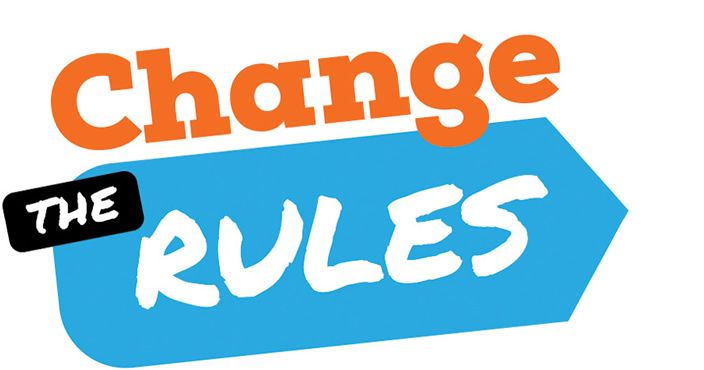It was virtually standing room only at the NSW/ACT Branch AGM on 20 October. As well as celebrating the year’s achievements, delegates enjoyed an inspirational speech from ACTU President Michele O’Neil.
O’Neil talked about the ACTU’s Change the Rules campaign, saying the need for change was “really clear” considering 30 years of economic growth in Australia had led to the highest levels of inequity in 76 years.
“This government still believes in the theory that things will magically get down to ordinary people through the trickle down effect. What we’re seeing is not even a drop.
“It’s a shocking indictment on our country that should be much fairer and more just.”
O’Neil spoke of the increase in insecure work, which was affecting education as well as countless other sectors. A former secretary of the Textile Workers Union, she said she cannot believe that the conditions she encountered in that industry have become the norm. She said 40% of workers are now in insecure work. IEU members are not only experiencing this themselves but witnessing how it affects the students in their care, who experience ‘wage theft’ and unfair treatment in their part time jobs.
She encouraged IEU members to support the campaign.
“I don’t see this as hopeless. All the things we associated with fairness in Australian life were hard fought for. We have the capacity for change. It does require a focussed effort, but we can do it. This is a moment of great unity.
“Every conversation you have in the staff room, at the school gate, on the sports field, counts.
“We can change Australia one conversation at a time.”
IEUA Secretary Chris Watt also addressed the AGM on the Senate Committee on Red Tape, where he exposed the burden of paperwork affecting teachers.
Another important issue raised at the meeting was the exemptions from anti-discrimination laws afforded to religious employers. The following motion was passed:
“The IEUA supports fair, safe and inclusive workplaces/learning environments free from discrimination and harassment. Based upon these values, the IEUA has a long history of calling for the removal of exemptions for ‘private educational authorities’ in the NSW Anti-Discrimination Act 1977.
In 2018, it is no longer consistent with community standards that non government education employees in NSW can be discriminated against on the grounds of sex, marital status, sexuality or disability.
It is similarly abhorrent that NSW students in non government schools and other facilities can be discriminated against on the basis of their sexuality or gender identity.
The IEUA NSW/ACT Branch AGM therefore calls upon the NSW Government to undertake an urgent review of the broad exemptions in the Anti-Discrimination Act 1977 to end any lawful exemptions from discriminatory employment on any grounds and ensure that the legislation protects all students and staff against discrimination.
Further we call on the ACT Government to undertake a similar review of its Discrimination Act 1991 and the exemptions within to ensure that staff and students in non government schools and colleges are guaranteed protection from discrimination in line with current community standards.”
For learning support teacher Ron Whiteman, Michele O’Neil’s address struck a chord.
Not only does he see how inequality affects the students in his care at St Joseph’s Catholic Primary Enfield, he has a daughter with Tourette Syndrome.
His daughter is suffering injuries from uncontrolled ticks because she is waiting to see a psychologist to get the necessary medication, but no one is immediately available.
“My wife is an occupational therapist. We are not the average family, yet we’re struggling to negotiate the health and education system.
“What must it be like for a lower social-economic family in a similar situation? What Michele said about a lack of fairness and inequality in the system is so true. We do need a change.”
Whiteman’s daughter also tried to get employment at a fast food chain, but experienced ‘wage theft’ when they didn’t want to pay her for time worked as a trial.
“We need a more equal distribution of wealth and for large corporates and wealthy individuals to pay their tax,” Ron said.




































































































































